Sign up for our newsletter
Explore more
The Best (Cheapest) Online Market & Keyword Research Tools For Copywriters
$76 billion dollars, aka the estimated worth of the global market research industry at the end of 2018.
The lion’s share of this money is distributed between large corporate firms; the Nielsens, Kantars, and Ipsos of the world. The rest of that money gets trickled down from large to small marketing agencies.
I won’t argue that firms like Nielsen and Kantar haven’t earned their status; there’s a reason Kantar’s revenue grew by 4% last year. It just irks me that reading one of their white papers costs $500–1000 and working with them directly on co-branded content is attached to an astronomically higher price (we’re talking tens-of-thousands).
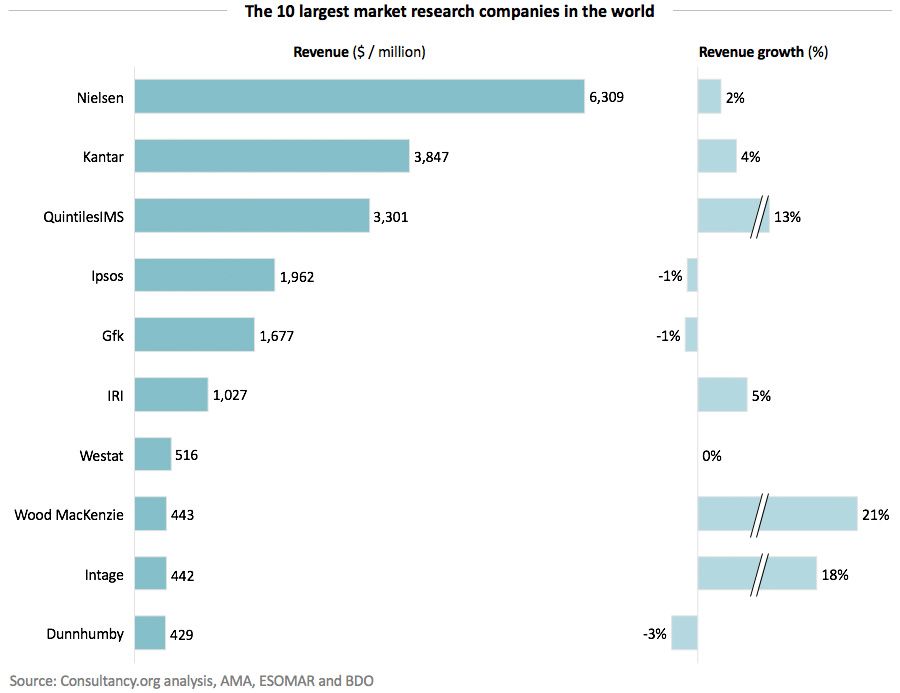
When you sign up with the big fish, it’s mostly about stamping their brand on your website or white paper for the instant legitimacy that comes with it. And while the option to spend that kind of money may be within your company or client’s ballpark, not all have an extra ten grand in their spending account to throw at a 12-page white paper.
So what can we do to get the information you’ll use as a foundation for pretty much all of your content strategy, without breaking the bank?
It’s time to DIY.
The Best Online Tools We Use For Market Research To Write Copy That Converts
We know that converting prospects into customers means understanding their pain points, but how can we find out what people want to read without market research? Here’s some tools you can use to better understand what message will engage your target audience.
Google Surveys – It’s simple to create a Google Survey account and start reaching out anonymously. Customize question type and order, target demographics, regions, and industries. You can set the number of answers you think you’ll need to get in order to make a reasonable assessment and understand the cost of completion before proceeding with the survey.
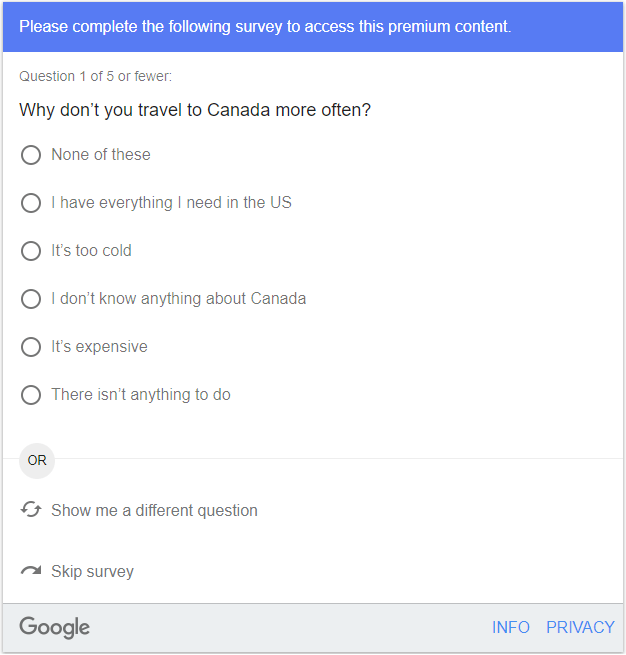
It’s important to understand that data from Google Surveys won’t be 100% accurate but it provides the quantitative research you can use to gauge new audiences and build into questions for the more qualitative information you’ll get later.
There are plenty of other online survey providers (SurveyMonkey, SoGoSurvey, Typeform, Usertesting, and ZoHo are all good options) but we like Google for its reach, price, and data. However, there are some great advantages to the paid platforms.
SurveyMonkey in particular has a very large data pool to sample from, with more demographic controls, meaning the granularity of your data will be much more detailed. On the UX suide, Usertesting is an outstanding platform when discovering user insights, giving you recorded user sessions at roughly $50.00USD/session.
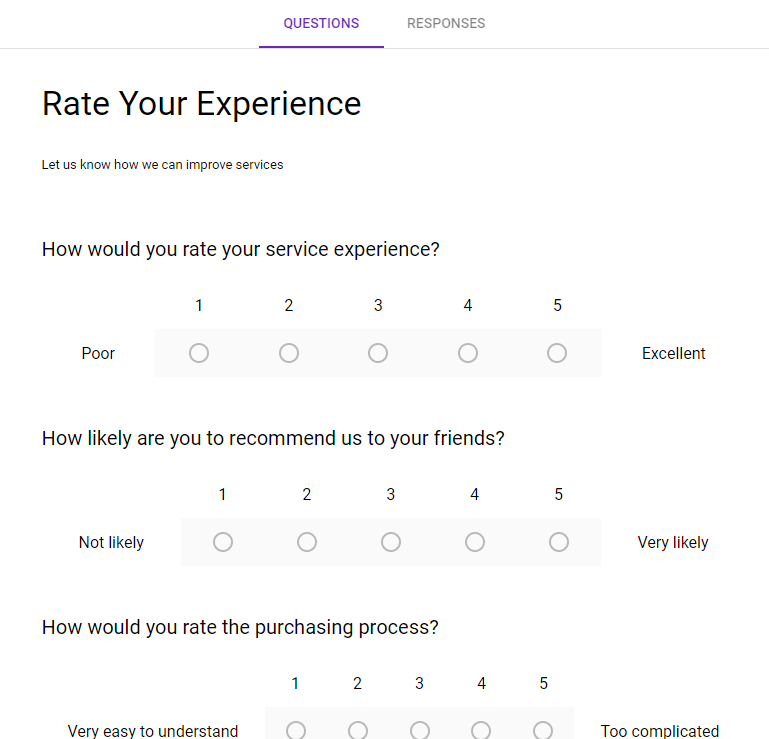
Google Forms – If you already have your target contacts email addresses, a classic Google Form will give you quantitative data at an extremely low cost. The trick with Forms is that you’ll be emailing it to your customers, and you need to make it worth their time to fill in. We suggest providing incentives for complete entries:
- $5.00 Starbucks gift card
- 2% discount code for e-commerce websites
- Entry into a grand prize draw for a portable speaker
Other email platforms — MailChimp, AWeber, ConvertKit, Pardot — are all viable options as well, but do come with a price tag.
Email an Interview Request
You might be surprised at how often people are willing to speak with you over the phone if your email is crafted correctly. A concise, honest email is often the best chance you have to get a one-on-one interview with a customer or prospective buyer. Just make sure you state how long you expect the interview to take, what you’ll do with the data, and when you’re available to meet.
Data gained from a one-on-one interview is some of the most valuable info you’ll use when strategically planning content for a product or service.
Craigslist / Kijiji / Facebook Groups
If you’re not having any luck getting interviews on your email requests, offer $25.00 for a one hour meeting on a platform or Facebook Group and watch the replies begin to pour in. Just be sure to always qualify respondents over the phone before agreeing to meet them and pay for their answers.
After Market Research Comes Copywriting
Once you’re satisfied with your research, it’s time to move on to copy writing. But how can you make sure your words will rank organically?
Our 3 Favourite Keyword Research Tools
The secret to ranking a website is answering search intent and crafting clever copy so that it includes the keywords (without overusing them) that will help search engines identify it as an authoritative source of information. Here are our 3 favourite tools to help you find out what people are asking, and what keywords will get your content — blogs, press releases, landing pages, social media posts — ranked.

1. AHRefs is an extremely helpful tool for marketers. A low-cost account helps you find out search volume of keywords, associated keywords, keyword ranking difficulty, click-through rates, cost-per-click, reference links, and what content is performing best. This platform is your way to peek behind the curtains and see just how effective your (and your competitions’) content is performing.
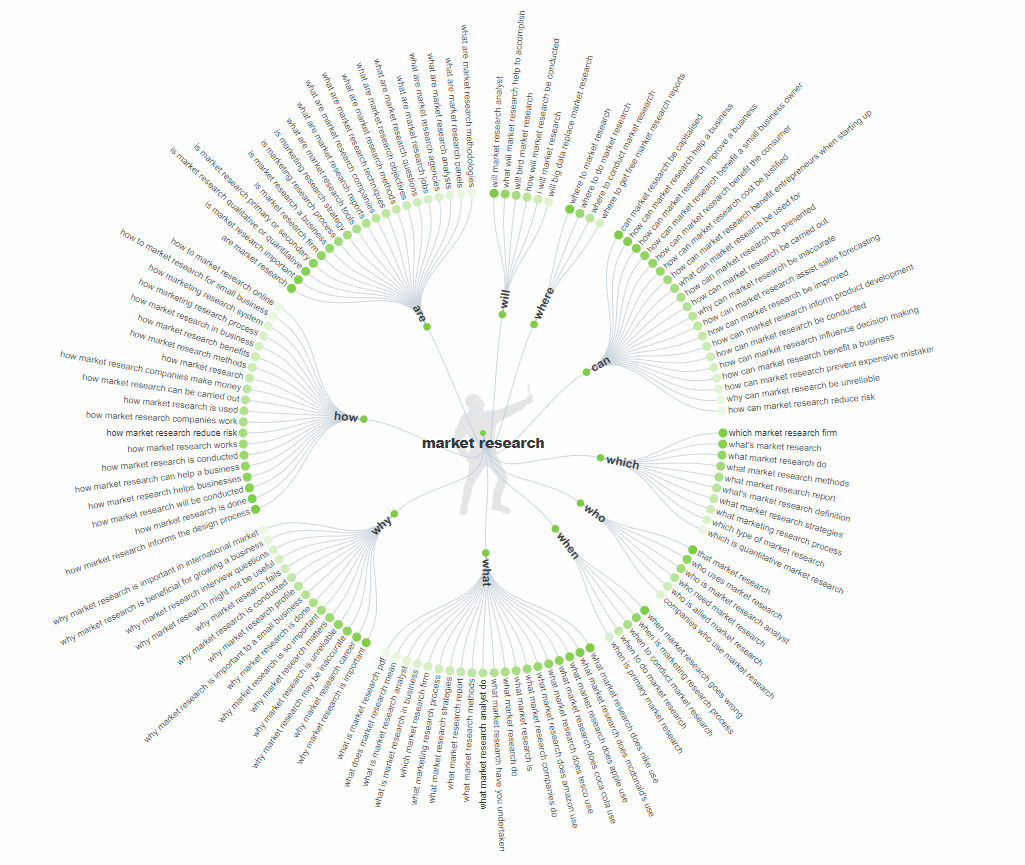
2. Need content ideas? Answer the Public is an amazing source when you need to come up with a steady stream of articles, blogs, press releases, social media campaigns or any other type of digital content as part of your marketing strategy. Simply type in the keyword you’re going after and you’ll see 100s of ideas based on what search engine users are commonly querying.
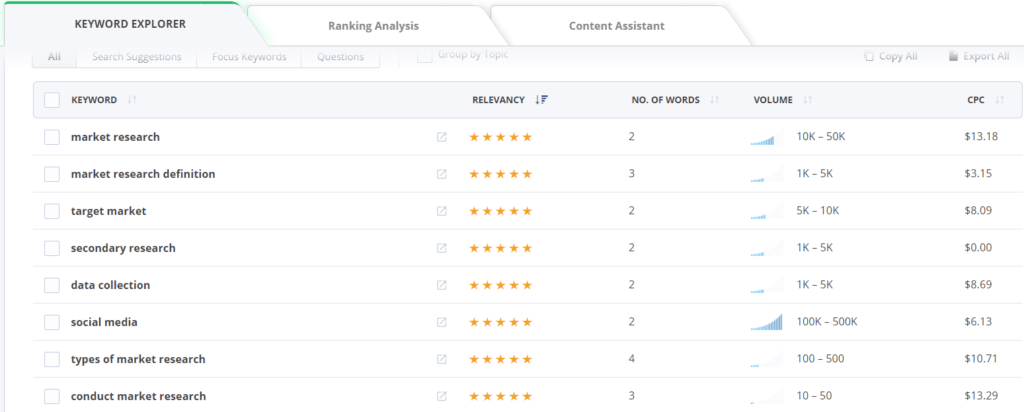
3. Cognitive SEO is like hacking organic search, providing relevant keywords that will get your content ranked on any search engine. Type in your primary keyword and be amazed at the volume and quality of results provided in seconds. You can use its handy Content Assistant feature to test out any copy you’ve written. Simply copy and paste your words, click analyze, and CognitiveSEO will give you an indication of how well your copy will rank, notify of you of what keywords you should be using, and tell you when you’ve overstuffed a keyword and are at risk of de-ranking. What more could a copywriter want?
Secret Ingredients For Successful Organic Ranking & Improving Conversion Rates
Bookmark this page or save the link for reference, and the next time you’re in need of keyword-laced copy that not only ranks but converts prospects to customers, you’ve got a solid set of tools at your disposal.
Have you subscribed to the DRIP blog yet? Do it now for more articles on digital marketing, copywriting, SEO, media production, podcasting, and anything else we feel like writing about.


